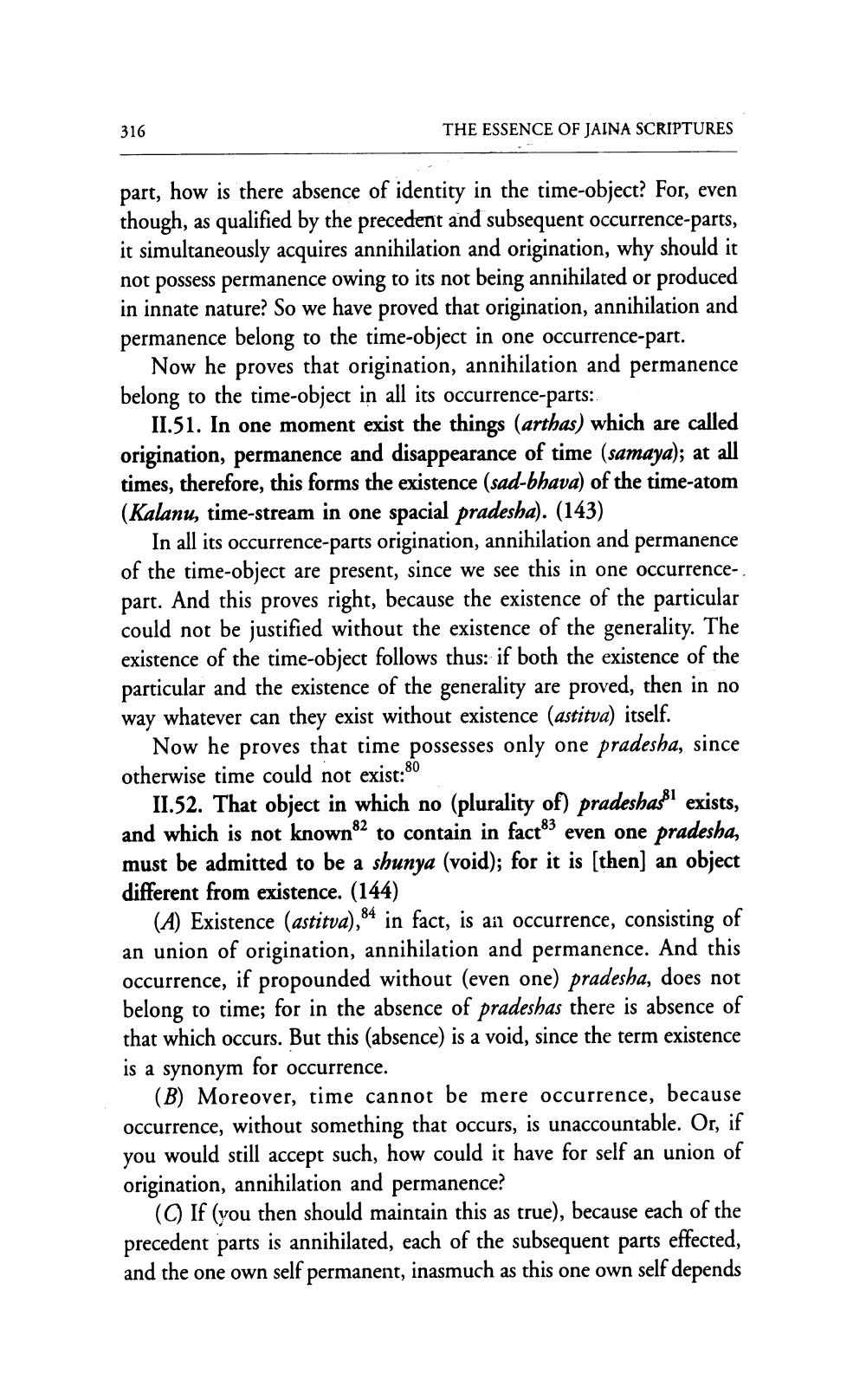________________
316
THE ESSENCE OF JAINA SCRIPTURES
part, how is there absence of identity in the time-object? For, even though, as qualified by the precedent and subsequent occurrence-parts, it simultaneously acquires annihilation and origination, why should it not possess permanence owing to its not being annihilated or produced in innate nature? So we have proved that origination, annihilation and permanence belong to the time-object in one occurrence-part.
Now he proves that origination, annihilation and permanence belong to the time-object in all its occurrence-parts:
II.51. In one moment exist the things (arthas) which are called origination, permanence and disappearance of time (samaya); at all times, therefore, this forms the existence (sad-bhava) of the time-atom (Kalanu, time-stream in one spacial pradesha). (143)
In all its occurrence-parts origination, annihilation and permanence of the time-object are present, since we see this in one occurrencepart. And this proves right, because the existence of the particular could not be justified without the existence of the generality. The existence of the time-object follows thus: if both the existence of the particular and the existence of the generality are proved, then in no way whatever can they exist without existence (astitva) itself.
Now he proves that time possesses only one pradesha, since otherwise time could not exist:80
11.52. That object in which no (plurality of) pradeshassl exists, and which is not known82 to contain in fact83 even one pradesha, must be admitted to be a shunya (void); for it is (then) an object different from existence. (144)
(A) Existence (astitva),84 in fact, is an occurrence, consisting of an union of origination, annihilation and permanence. And this occurrence, if propounded without (even one) pradesha, does not belong to time; for in the absence of pradeshas there is absence of that which occurs. But this (absence) is a void, since the term existence is a synonym for occurrence.
(B) Moreover, time cannot be mere occurrence, because occurrence, without something that occurs, is unaccountable. Or, if you would still accept such, how could it have for self an union of origination, annihilation and permanence?
(O) If (you then should maintain this as true), because each of the precedent parts is annihilated, each of the subsequent parts effected, and the one own self permanent, inasmuch as this one own self depends




